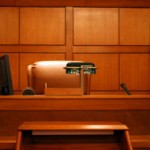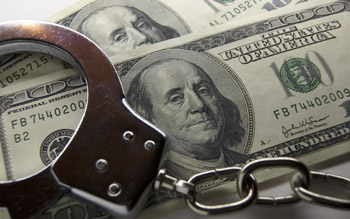 WASHINGTON – A Los Angeles-area executive was arrested Tuesday in connection with a $9 million scheme to defraud United Commercial Bank and East West Bank, officials announced.
WASHINGTON – A Los Angeles-area executive was arrested Tuesday in connection with a $9 million scheme to defraud United Commercial Bank and East West Bank, officials announced.
Chung Yu “Louis” Yeung, 37, of San Dimas, was indicted on Oct. 22, 2014, in Los Angeles for one count of conspiracy to commit bank fraud and five counts of bank fraud. The indictment was under seal until his arrest today.
Guo Xiang “David” Fan, 52, was also indicted for conspiracy to commit bank fraud and bank fraud, as well as money laundering, and remains at large.
According to the indictment, Yeung was Vice President and Fan was President of Eastern Tools and Equipment, an Ontario, California company that sold portable generators and other equipment.
The indictment charges Yeung and Fan with defrauding United Commercial Bank (UCB) and East West Bank, which took over UCB’s accounts, of more than $9 million.
East West Bank allegedly sustained a loss of approximately $9,1 million as a result of the fraud scheme.
Specifically, the indictment alleges the following allegations:
Yeung, Fan, and others overstated Eastern Tools’ accounts receivable to increase its line of credit with UCB and later East West.
To support the inflated accounts receivable submitted to the banks, Yeung, Fan, and others allegedly opened approximately 20 shell companies, backstopped with fictitious business name statements, post office boxes, bank accounts, and telephone numbers.
They then allegedly moved money from Eastern Tools’ bank accounts into the shell companies’ bank accounts to create the false appearance of substantial commercial activity.
Finally, Yeung, Fan, and others allegedly siphoned those funds into their own personal accounts.
In November 2008, United Commercial Bank Holdings, Inc., United Commercial Bank’s parent company, received $298.7 million in federal taxpayer funds through the U.S. Department of the Treasury Troubled Asset Relief Program or TARP.
On Nov. 6, 2009, United Commercial Bank failed and was taken over by state and federal regulators. As a result of the bank’s failure, none of the TARP funds were repaid, and the $298.7 million TARP investment has been written-off.
The defendants are presumed innocent until proven guilty.

